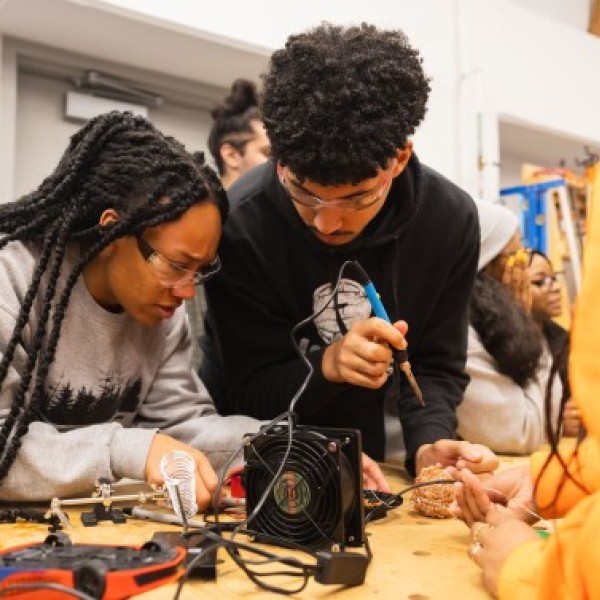Several New York Sea Grant (NYSG) projects will receive support from an $8.1 million national investment to strengthen resilient coastal communities. NYSG's ongoing efforts such as Community Flood Watch in NYC as well as statewide initiatives focusing on the MyCoast NY community science platform and natural and nature-based shorelines will be bolstered and expanded.
A cooperative program between Cornell and the State University of New York under NOAA’s National Sea Grant College Program, NYSG’s extension programming is administered through Cornell Cooperative Extension (CCE).
Shoreline Management Practices
Two years of funding totaling $150,000 is being provided for an NYSG effort to connect diverse end-users in New York City and New York state with relevant expertise around multi-beneficial, more resilient alternatives to traditional shoreline armoring. Project leads will co-produce forums, workshops, data visualization, and communications products, and formalize a community of practice to share key findings with local, national, and international audiences.
Instead of relying on hardened infrastructure such as seawalls, bulkheads, and revetments, New York state is encouraging coastal managers and landowners to consider greener alternatives, such as living shorelines, constructed marshes and sand dunes, and ecologically enhanced breakwaters and bulkheads that provide similar risk-reduction benefits with fewer negative consequences. Yet despite a proliferation of these strategies in the state, many questions remain about how well they can truly deliver risk reduction, and ecological and community benefits.
This builds upon work detailed in a journal article published last year in Ecology and Society on "Operationalizing resilience" — how to define resilience in a way that it can be measured, assessed and promoted in design and policy.
“With this publication, we are sharing what we learned from a multi-year process of developing a framework to define and monitor shoreline resilience,” said NYSG’s Katie Graziano, a CCE specialist in coastal resilience and one of the report’s co-authors. “The paper contributes to the conversation among academics, policymakers, and the public about what resilience means in practice.”
Expanding Community Resilience
An additional $125,000 in national support will allow NYSG to create a train-the-trainer program to grow Community Flood Watch in NYC and develop extension and outreach resources for the pilot MyCoast NY program to expand use of a publicly available, centralized database of crowd-sourced photos of flooding, storm damage, and shoreline change from across the state.
“Catastrophic flooding associated with large storms like hurricanes gain great attention, but people’s lives are often disrupted by the smaller, more frequent street-level floods that accompany high tides and high-intensity rain events,” said NYSG Associate Director Kathy Bunting-Howarth.
“Community flood reports allow researchers to improve flood forecasts and alerts, empower residents to communicate flood impacts on their daily lives, and give decision-makers a better understanding of current issues and potential interventions,” added Graziano.
MyCoast NY, a downloadable app and web portal developed by NYSG and the NYS Water Resources Institute, is used to collect and analyze photos of flooding, changing shorelines, and hazardous weather impacts across New York's various water bodies and builds off the work of the Community Floodwatch Program, expanding it statewide.
Two NYSG CCE specialists, Kathleen Fallon and Jessica Kuonen, serve as co-leads for MyCoast NY, the reports from which can be beneficial for emergency managers, local planners, residents, and state agencies to understand our changing environment and the impacts of flooding on every New York community.
A longer version of this article appeared on the New York Sea Grant website.
Paul C. Focazio is the Communications Manager and Assistant Director of Community Relations for New York Sea Grant.





